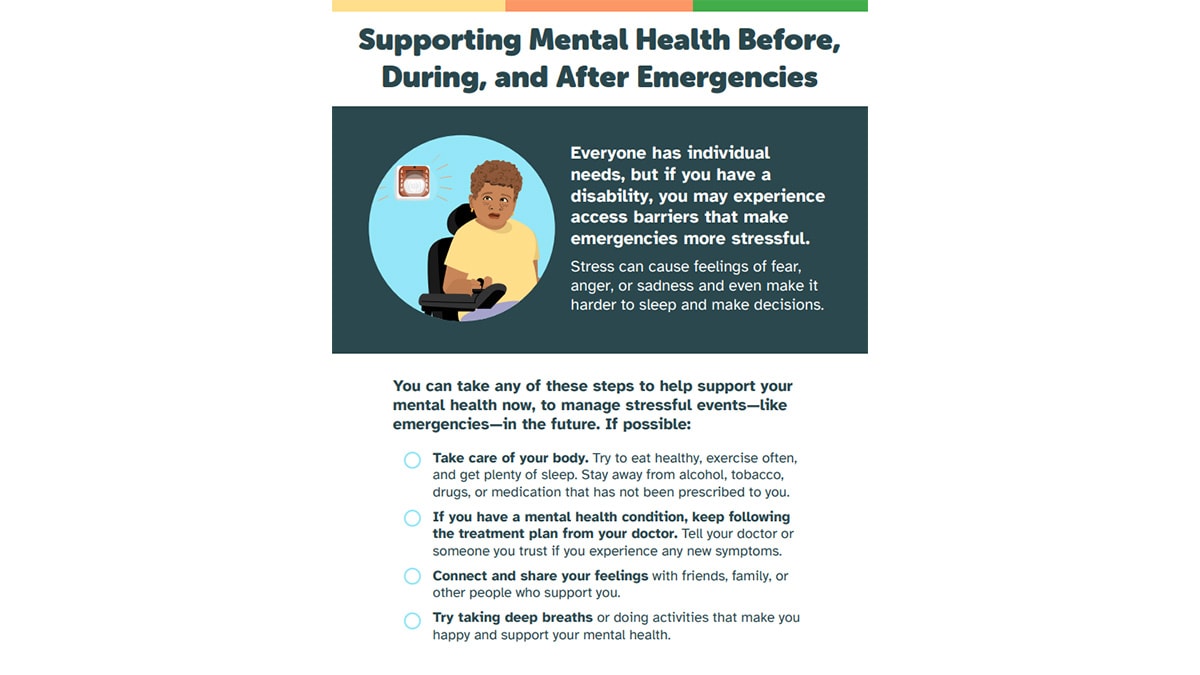What to know
Emergencies can be stressful for anyone. People with disabilities may have additional considerations that can make emergencies even more stressful, such as managing medical needs during an emergency. You can take steps to support your mental health and manage stressful events.

Supporting mental health before, during, and after an emergency
Mental Health Emergency Now
Emergencies can be stressful for anyone. However, adults with disabilities report experiencing frequent mental distress nearly 5 times as often as adults without disabilities. People with disabilities may have additional considerations that can make emergencies even more stressful, such as managing medical needs during an emergency. Your mental health is always important, but it is especially important during an emergency. You can take steps to support your mental health and manage stressful events.
Coping with stress
Everyone feels stressed during an emergency. It can also take time to feel like yourself again after an emergency. It's okay to ask for help. Taking steps to cope with stress can help you feel better. Visit the Mental Health and Coping with Stress Resources page for more information to help support your mental health during an emergency.
How to recognize the signs of distress
It is common for stress to overwhelm your usual coping strategies during or after an emergency. This can lead to distress. Recognizing the signs of distress can help you take steps to feel better and get help. Learn the common signs of distress and tips for coping with an emergency.
How to find help right now
Resources are available if you are feeling stressed or overwhelmed. Visit How Right Now to find resources to get help for any emotion you may be feeling.
If you are feeling stressed during an emergency, contact the free Disaster Distress Helpline (1-800-985-5990). The helpline, provided by the Substance Abuse and Mental Health Services Administration (SAMHSA), will connect you with crisis counseling. It is available in multiple languages, including American Sign Language.
If you are having suicidal thoughts, call or text 988 to reach SAMHSA's Suicide and Crisis Lifeline. The lifeline will connect you with free and confidential support.
Resources
Find a broad compilation of resources on emergency preparedness and response that can be filtered by audience and topic: Resources.


